How to Build Page Authority
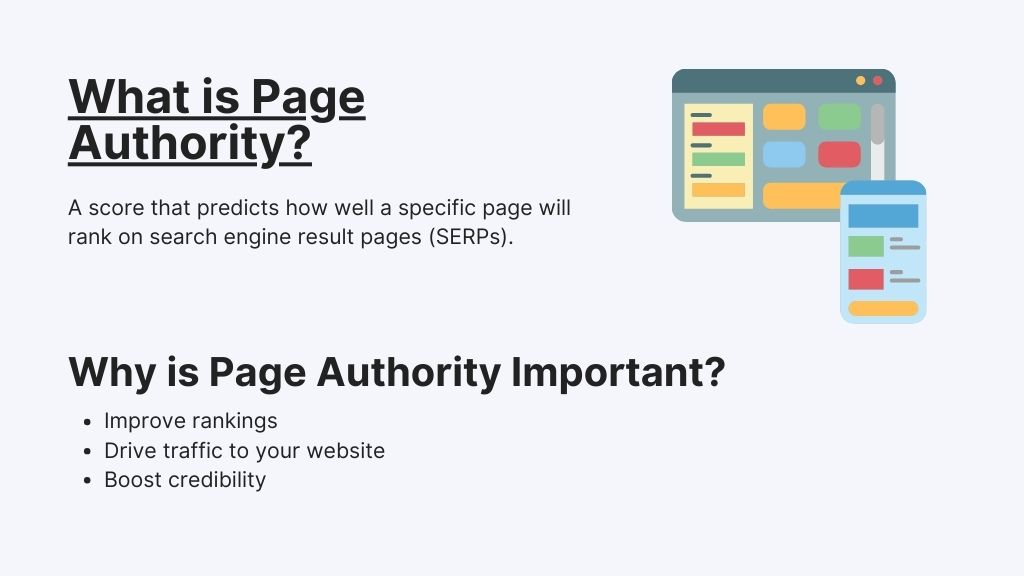
Building page authority is crucial for improving your website’s search engine rankings and attracting more organic traffic. Page authority reflects the strength and credibility of a specific page on your website. Higher authority pages are more likely to rank well in search results.
Let’s explore the fundamentals of building page authority, including practical tips and strategies for beginners.
In this article:
- What is Page Authority?
- 10 Factors Influencing Page Authority
- 7 Common Mistakes to Avoid When Building Page Authority
What is Page Authority?
Page authority is a score developed by SEO experts to predict how well a specific page will rank on search engine result pages (SERPs). It is calculated using various factors such as link profile, content quality, and user engagement.
Page authority is important because it helps:
- Improve Rankings: Higher authority pages are more likely to rank higher in search results.
- Drive Traffic: Pages with high authority attract more organic traffic.
- Boost Credibility: High authority pages are seen as more credible and trustworthy by users and search engines.
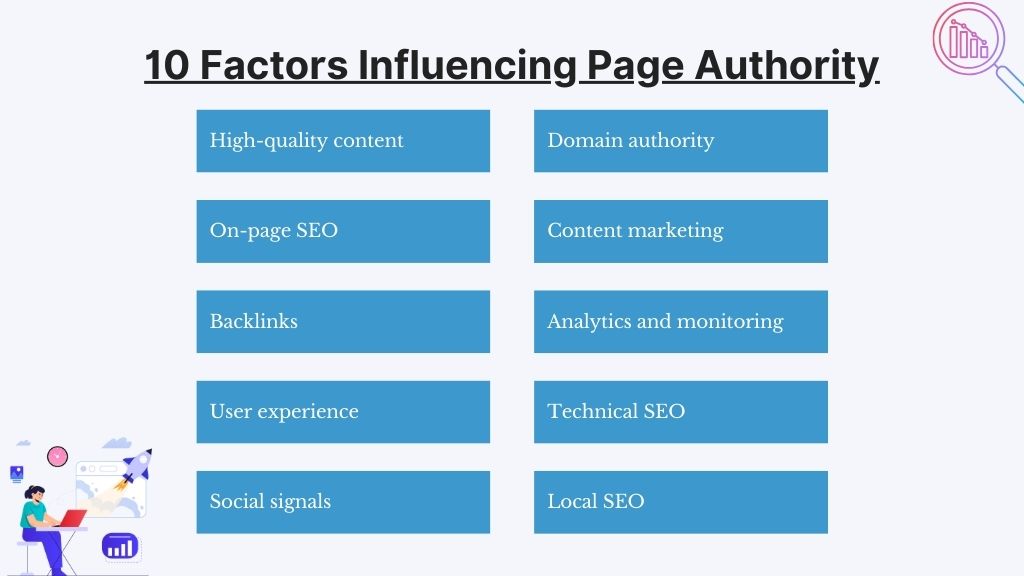
10 Factors Influencing Page Authority
1. High-Quality Content
Focus on creating content that is informative, engaging, and valuable to your audience. High-quality content answers users’ questions and provides solutions to their problems.
Incorporate relevant keywords naturally into your content. This helps search engines understand the topic of your page and rank it for relevant queries.
Keep your content up to date by regularly reviewing and updating it. Fresh, relevant content maintains user interest and improves page authority.
2. On-Page SEO
Ensure your title tags are descriptive and include your primary keyword. This helps search engines understand the content of your page.
Write compelling meta descriptions that accurately summarize your content. Include relevant keywords to attract clicks from search engine users.
Use header tags (H1, H2, H3) to structure your content. This makes it easier for search engines and users to navigate your page.
Link to other relevant pages on your website. This helps distribute page authority and keeps users engaged with your content.
3. Backlinks
Backlinks from reputable websites are crucial for building page authority. Focus on earning backlinks from authoritative sources in your industry.
Write guest posts for other websites to earn backlinks. Ensure the sites you guest post on are relevant and have high authority.
Identify broken links on other websites and offer your content as a replacement. This helps you earn backlinks and build relationships with other webmasters.
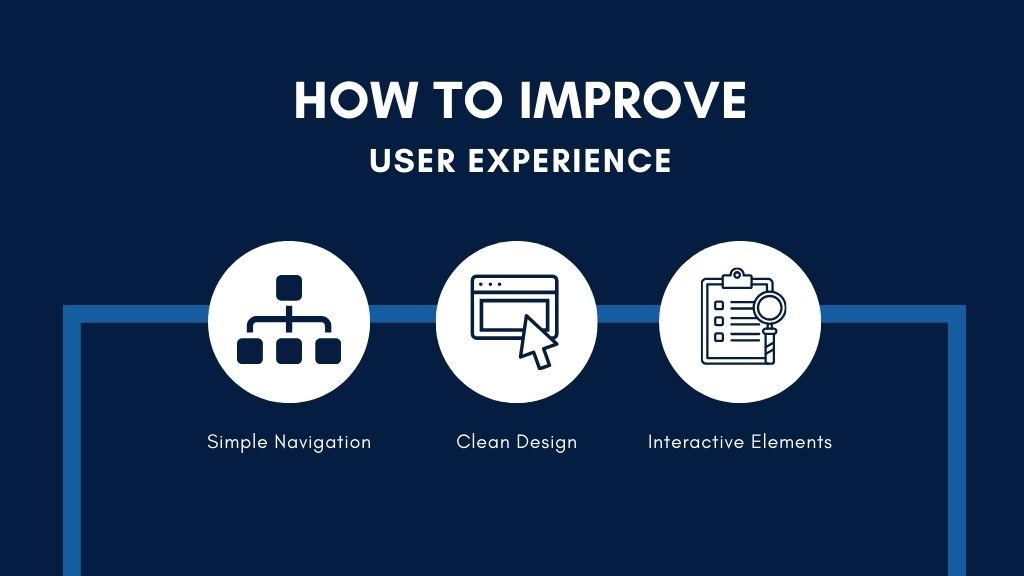
4. User Experience
Ensure your website is mobile-friendly. A responsive design improves user experience and helps your pages rank higher in search results.
Optimize your website’s load times by compressing images, minifying code, and using a content delivery network (CDN). Fast load times improve user experience and page authority.
Create a clear and intuitive navigation structure. Easy-to-use navigation keeps users on your site longer and reduces bounce rates.
5. Social Signals
Promote your content on social media platforms. Social signals, such as likes, shares, and comments, can indirectly influence page authority.
Respond to comments and messages on social media. Engaging with your audience builds relationships and encourages more social sharing.
Add social sharing buttons to your content. This makes it easy for users to share your content with their networks and drive social traffic to your site.
6. Domain Authority
While page authority is specific to individual pages, domain authority reflects the overall strength of your website. Antonio Gabric of Hunter.io and Viralspy.io admits domain rating is one of the things they track when building page authority.
“It’s not enough anymore to publish 100s of pages, get dozens of links, and rank for a topic,” he added. “You need to be recognized as an authority on the topic.”
Focus on building domain authority by earning backlinks, creating high-quality content, and optimizing your site for SEO.
Maintain consistent branding across your website and social media profiles. A strong brand builds trust and credibility, which can positively impact domain and page authority.
Ensure your website is secure by using HTTPS. A secure website builds trust with users and search engines, contributing to higher domain and page authority.
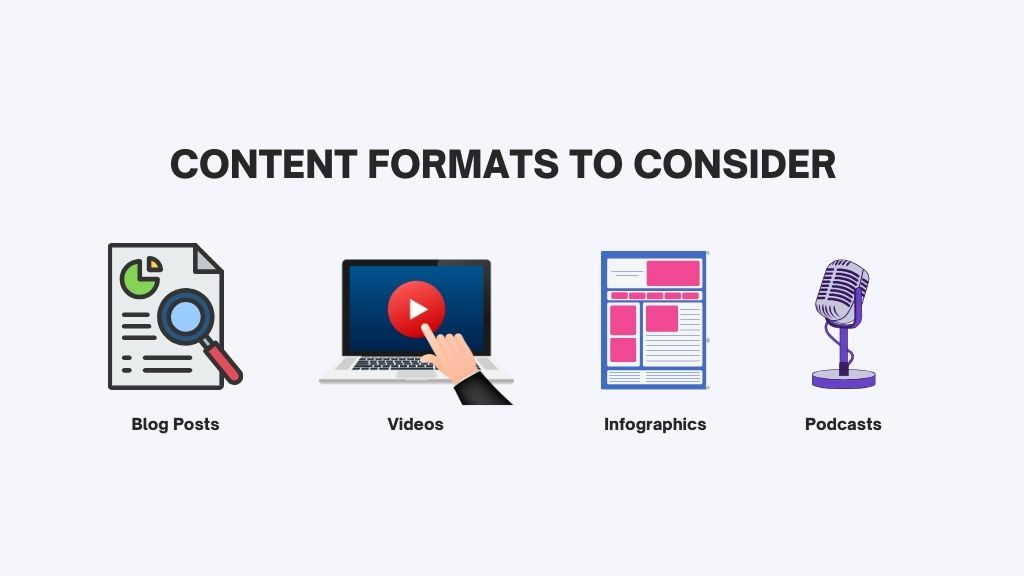
7. Content Marketing
Plan your content in advance using a content calendar. Consistent content creation keeps your audience engaged and improves page authority.
Create evergreen content that remains relevant over time. Evergreen content attracts continuous traffic and backlinks, boosting page authority.
Experiment with different content formats, such as blog posts, videos, infographics, and podcasts. Diverse content formats cater to different audience preferences and increase engagement.
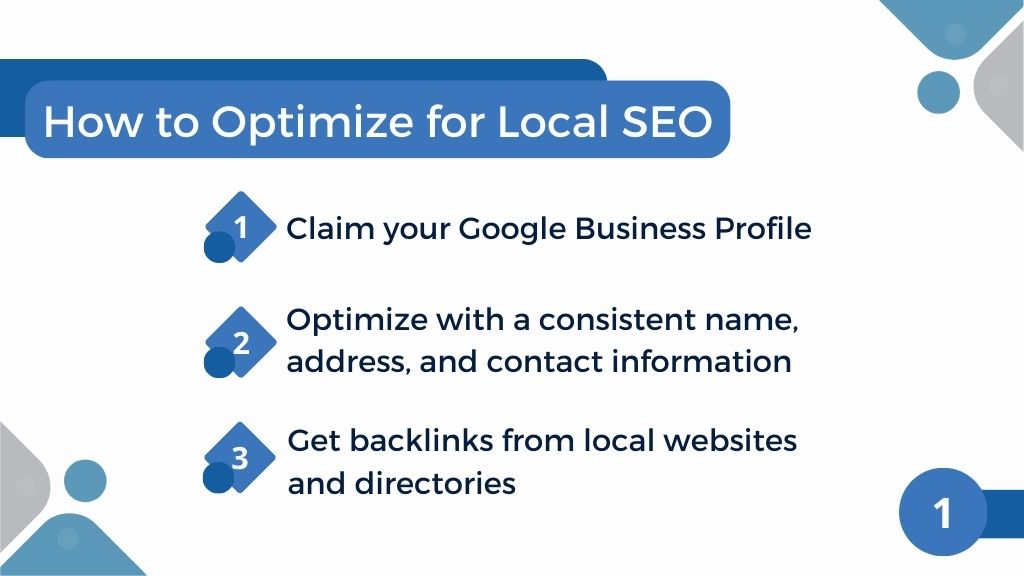
8. Local SEO
If you have a local business, optimize your site for local searches. Include your business name, address, and phone number on your website.
Create and optimize a Google Business profile. A well-optimized profile improves your visibility in local search results, like the Google local finder, and boosts page authority.
Earn backlinks from local websites, such as local news sites and business directories. Local backlinks build credibility and authority for your pages.
9. Technical SEO
Ensure your site structure is logical and easy to navigate. A clear site structure helps search engines crawl and index your pages effectively.
Create and submit XML sitemaps to search engines. Sitemaps help search engines discover and index your pages faster.
Regularly check for and fix any broken links on your site. Broken links negatively impact user experience and page authority.
10. Analytics and Monitoring
Track your website’s performance using Google Analytics. Monitor key metrics such as page views, bounce rates, and average time on page to understand user behavior.
“It doesn’t matter how much content you have on a page if users don’t care about it,” Ashley Cumming, founder of content marketing agency Searchlight Content, said. “Google pays attention to how long users spend on your site consuming content.”
Use tools like Ahrefs or Moz to monitor your backlink profile. Identify high-quality backlinks and track any new or lost links.
Conduct regular SEO audits to identify and fix any issues on your site. Regular audits ensure your website remains optimized for search engines and users.
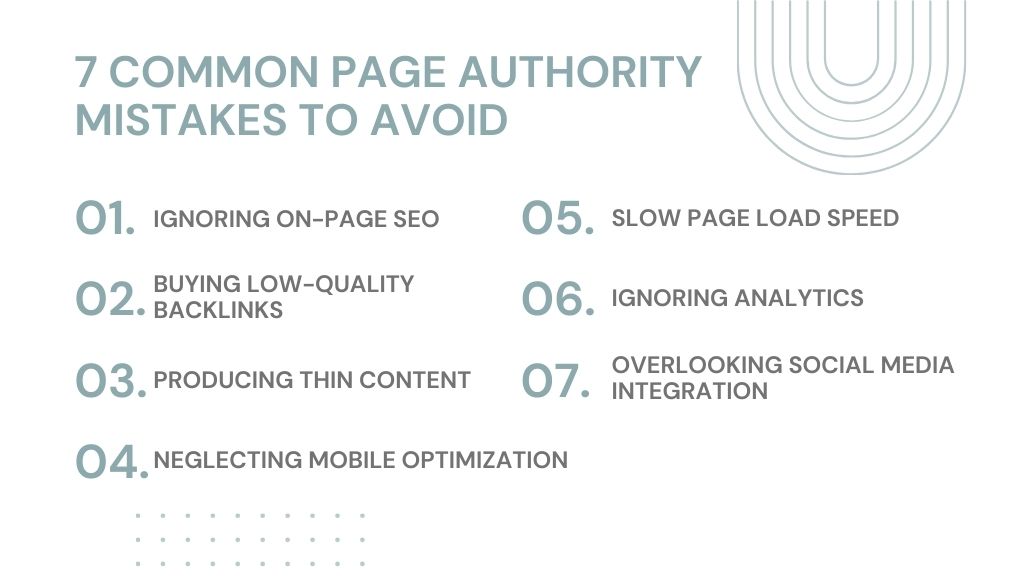
7 Common Mistakes to Avoid When Building Page Authority
1. Ignoring On-Page SEO
Failing to optimize title tags and meta descriptions can result in missed opportunities for better rankings. These elements help search engines understand your content and attract clicks from users.
Neglecting to use header tags (H1, H2, H3) makes it harder for search engines to interpret your content structure. Proper use of headers improves readability and SEO.
2. Buying Low-Quality Backlinks
Purchasing backlinks from low-quality or irrelevant sites, as well as unnatural links, can lead to severe penalties from search engines. These backlinks can harm your site’s reputation and rankings.
Instead of buying backlinks, focus on earning them through high-quality content and genuine outreach. This approach is more sustainable and effective for long-term SEO success.
3. Producing Thin Content
Thin content that lacks depth and substance fails to engage users and does not rank well. Search engines prioritize comprehensive, valuable content that provides detailed information.
Prioritize creating high-quality content over churning out a high volume of low-quality posts. Well-researched and well-written content attracts more backlinks and keeps users on your page longer.
4. Neglecting Mobile Optimization
With the majority of web traffic coming from mobile devices, ignoring mobile optimization is a critical mistake. Ensure your site is mobile-friendly to provide a positive user experience and improve your rankings.
Implement a responsive design that adjusts to different screen sizes and devices. This ensures that your content is accessible and readable on all devices.
5. Slow Page Load Speed
A slow-loading website frustrates users and leads to high bounce rates. Optimize your site’s load speed to keep users engaged and improve your page authority.
Compress images, use browser caching, and minimize code to enhance your site’s performance. Regularly test your site’s speed using tools like Google PageSpeed Insights.
6. Ignoring Analytics and Monitoring
Failing to use analytics tools means missing out on valuable data that can inform your SEO strategy. Regularly monitor your site’s performance to identify areas for improvement.
Use tools like Google Analytics to track key metrics and make data-driven decisions. Regular audits and adjustments based on performance data are essential for maintaining and building page authority.
7. Overlooking Social Media Integration
Neglecting social media means missing opportunities to drive traffic and build authority. Promote your content on social platforms to increase visibility and engagement.
Engage with your audience on social media to generate social signals, which can indirectly influence your page authority. Encourage shares, likes, and comments to boost your content’s reach.
Establish Your Expertise
Building page authority is essential for improving your website’s search engine rankings and attracting more organic traffic. By focusing on high-quality content, on-page SEO, backlinks, and user experience, you can effectively increase your page authority. Remember, building page authority takes time and consistent effort, but the results are well worth it.
As you work on building page authority, use Link Genius to strengthen your off-page SEO strategy. Secure valuable backlink opportunities to boost your site’s authority and visibility. Book a demo today!
